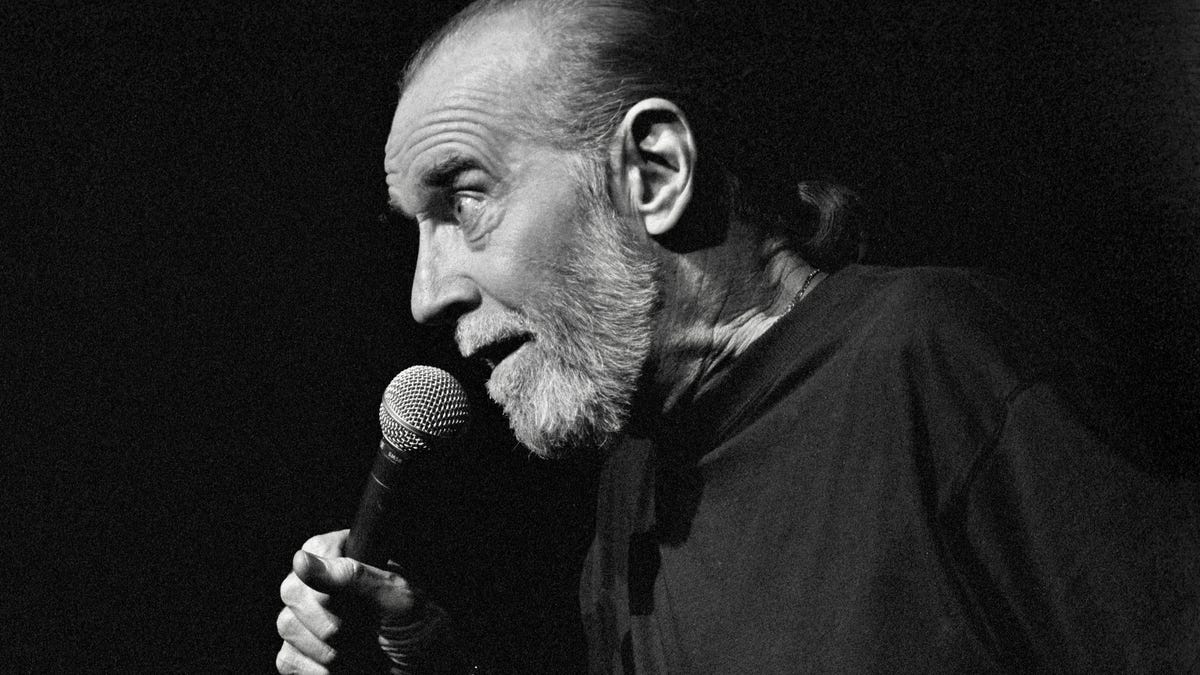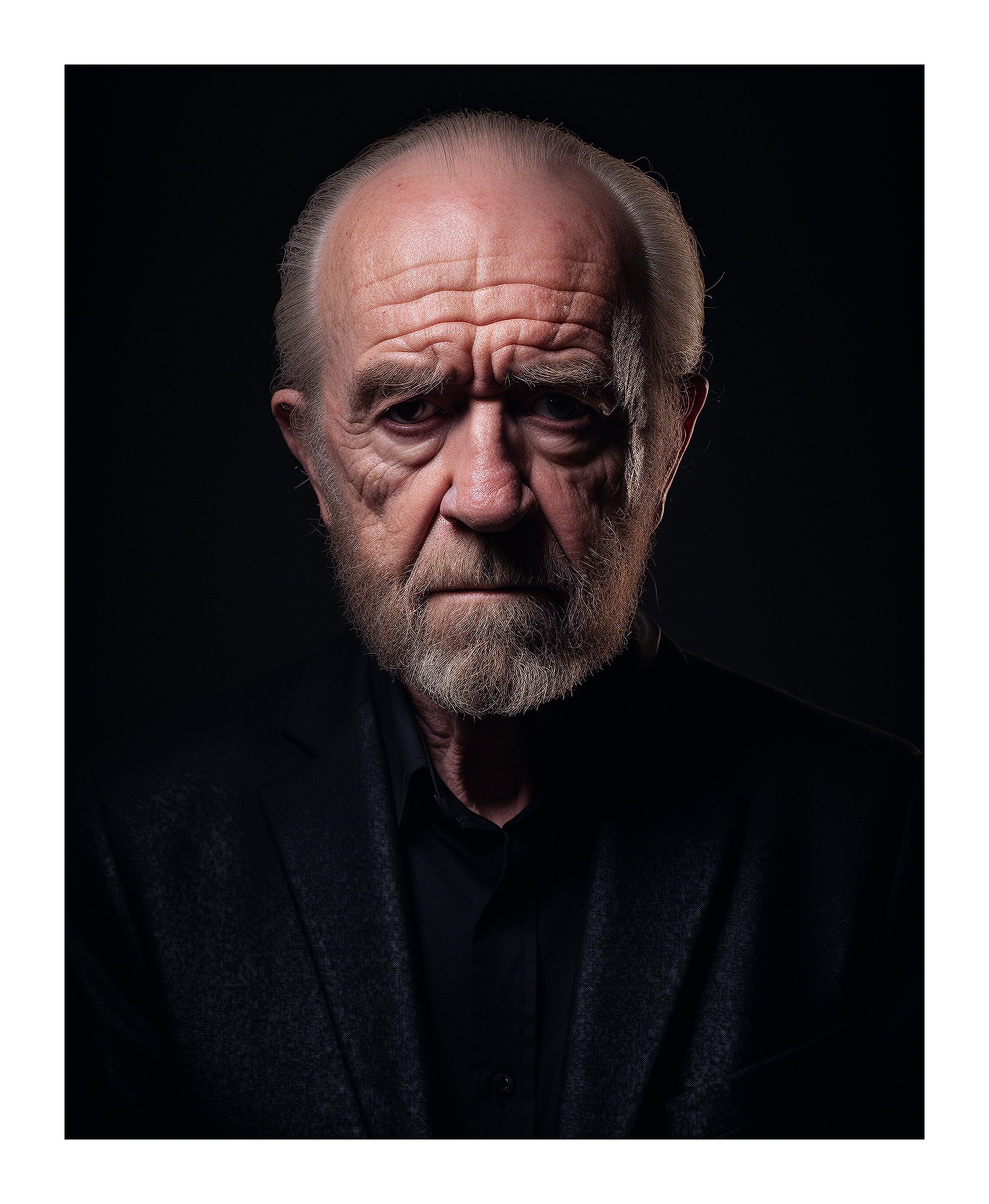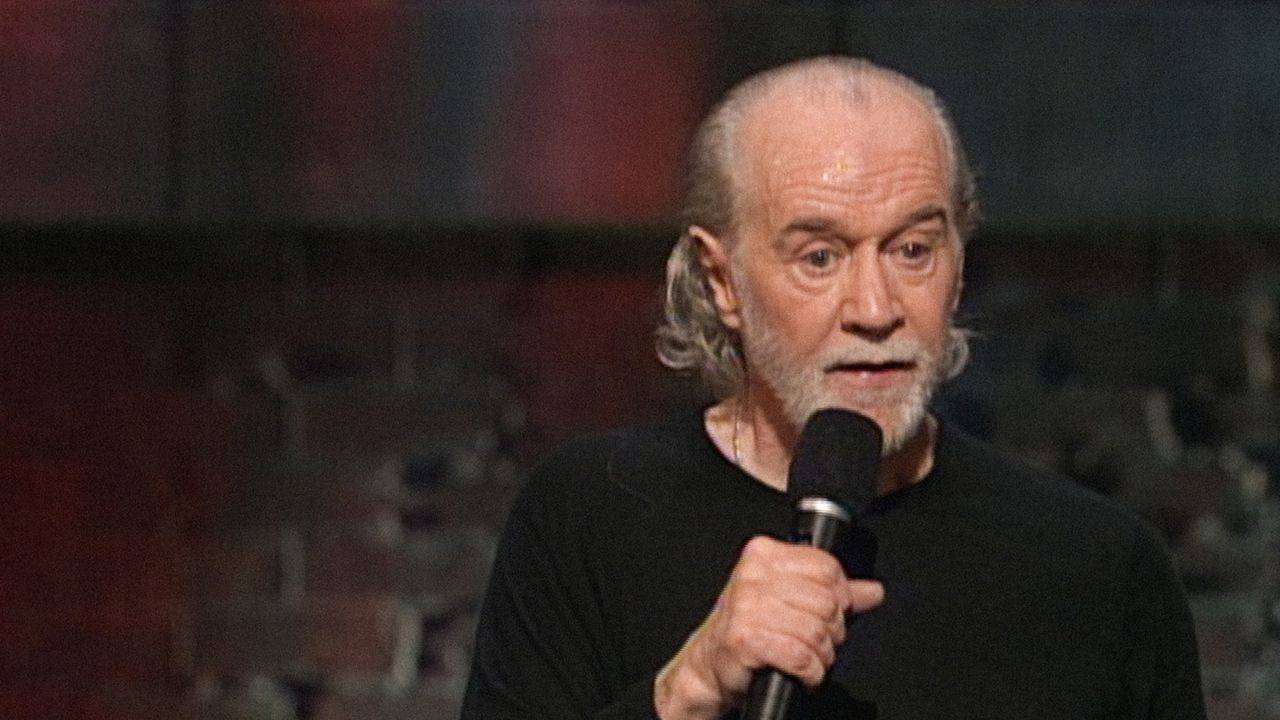Who influenced the legendary comedian George Carlin?
George Carlin, the iconic American stand-up comedian, writer, and actor, was influenced by various individuals and experiences throughout his life. Among the most notable influences on his comedy were:
Lenny Bruce: Bruce was a groundbreaking comedian known for his satirical and often controversial routines. Carlin admired Bruce's fearless approach to comedy and his ability to challenge societal norms.
- A Comprehensive Guide To Branch Banking Understanding The Role Of Branches
- Your Bosss Cruel Fate Uncovering The Tragic End Of A Leader
- Woody Allen: Allen's absurdist humor and philosophical musings resonated with Carlin, who incorporated similar elements into his own work.
- The Beat Generation: Carlin was drawn to the countercultural movement of the 1950s and 60s, which influenced his anti-establishment and nonconformist views.
- Personal experiences: Carlin's own experiences, including his childhood, military service, and drug use, provided him with a wealth of material for his comedy.
These influences shaped Carlin's unique comedic style, characterized by its sharp wit, social commentary, and exploration of taboo subjects. His comedy continues to inspire and influence comedians and audiences alike.
Personal details of George Carlin:
| Birth Name | George Denis Patrick Carlin |
|---|---|
| Birth Date | May 12, 1937 |
| Birth Place | New York City, New York, U.S. |
| Death Date | June 22, 2008 |
| Death Place | Santa Monica, California, U.S. |
| Occupation | Comedian, actor, writer |
| Years active | 1959-2008 |
| Spouse(s) | Brenda Hosbrook (1961-1971) Sally Wade (1971-1997) Kelly Carlin (1998-2008) |
| Children | Kelly Carlin, Brenda Carlin |
Main article topics:
- Unraveling Trace Gallaghers Age The Truth Revealed
- 45 Years Of Dedication A Mans Incredible Penny Collection
- Early life and career
- Breakthrough and rise to fame
- Comedy style and influences
- Social commentary and activism
- Legacy and impact
George Carlin Influenced By
George Carlin, the legendary comedian, was influenced by various individuals and experiences throughout his life. These influences shaped his unique comedic style, characterized by its sharp wit, social commentary, and exploration of taboo subjects.
- Lenny Bruce: Groundbreaking comedian known for his satirical and controversial routines.
- Woody Allen: Absurdist humor and philosophical musings.
- The Beat Generation: Countercultural movement of the 1950s and 60s.
- Personal experiences: Childhood, military service, and drug use.
- Social and political climate: Vietnam War, Watergate scandal.
- Counterculture and anti-establishment movements: Hippie movement, civil rights movement.
- Philosophy and literature: Existentialism, absurdism, and the works of authors like Kurt Vonnegut.
- Fellow comedians: Richard Pryor, Mort Sahl, and Steve Martin.
These influences are evident in Carlin's comedy, which often tackled controversial topics such as religion, politics, and social norms. He was known for his sharp wit, observational humor, and ability to make audiences laugh while also challenging their beliefs and assumptions.
1. Lenny Bruce
Lenny Bruce was a pivotal figure in the development of modern stand-up comedy and a significant influence on George Carlin. Bruce's groundbreaking routines, characterized by their sharp wit, social commentary, and willingness to challenge societal norms, left a lasting impact on Carlin's own comedic style.
- Satirical Humor: Bruce was known for his use of satire to criticize social and political issues, often pushing the boundaries of what was considered acceptable. Carlin adopted this approach, using humor to expose the absurdities and hypocrisies of society.
- Observational Comedy: Bruce's routines often drew upon his keen observations of everyday life. Carlin similarly used observational comedy to find humor in the mundane and highlight the complexities of human behavior.
- Breaking Taboos: Bruce was fearless in his willingness to tackle controversial topics, including religion, politics, and sexuality. Carlin followed in Bruce's footsteps, using his comedy to challenge taboos and provoke thought.
- Social Commentary: Bruce's comedy was often infused with social commentary, using humor to criticize social and political institutions. Carlin also used his platform to address important issues, using comedy to raise awareness and promote change.
Bruce's influence on Carlin can be seen in Carlin's own routines, which often echoed Bruce's satirical approach, observational humor, and willingness to tackle controversial topics. Carlin credited Bruce as a major inspiration, and Bruce's groundbreaking work helped to shape the trajectory of Carlin's career.
2. Woody Allen
Woody Allen's influence on George Carlin can be seen in the latter's use of absurdist humor and philosophical musings in his comedy.
- Absurdist Humor
Allen's absurdist humor, which often explores the meaninglessness and irrationality of life, influenced Carlin's own comedic style. Carlin's routines often featured surreal and nonsensical elements, highlighting the absurdity of everyday life and social conventions.
- Philosophical Musings
Allen's philosophical musings on topics such as mortality, religion, and the human condition resonated with Carlin. Carlin's comedy often delved into similar themes, exploring the complexities of human existence and the search for meaning in a seemingly meaningless world.
- Existentialism
Allen's existentialist perspective, which emphasizes the absurdity of existence and the importance of individual freedom and responsibility, influenced Carlin's own worldview and comedic approach. Carlin's routines often explored existential themes, such as the meaning of life, the inevitability of death, and the search for purpose in an indifferent universe.
- Nihilism
Allen's nihilistic tendencies, which question the inherent meaning or value of life, also influenced Carlin's comedy. Carlin's routines often expressed a sense of disillusionment with society and the human condition, highlighting the futility of many human endeavors and the meaningless pursuit of material wealth and status.
Woody Allen's influence on George Carlin is evident in Carlin's comedic style, which combined absurdist humor, philosophical musings, and a deeply cynical and pessimistic outlook on life. Carlin's comedy challenged audiences to question their own beliefs and assumptions, and to confront the often-absurd and meaningless nature of human existence.
3. The Beat Generation
The Beat Generation, a countercultural movement that emerged in the post-World War II era, had a significant influence on George Carlin and his comedic style.
The Beats, as they were known, rejected the conformity and materialism of mainstream society, embracing nonconformity, individuality, and artistic expression. Their emphasis on personal freedom, experimentation, and the exploration of alternative lifestyles resonated with Carlin, who often expressed similar sentiments in his comedy.
Carlin's routines frequently challenged social norms and questioned authority, reflecting the Beat Generation's anti-establishment stance. He explored themes of alienation, disillusionment, and the search for meaning in a rapidly changing world, topics that were central to the Beat movement.
The Beats' emphasis on spontaneity and improvisation also influenced Carlin's comedic style. He was known for his ability to riff on current events and personal experiences, creating a unique and unpredictable performance that engaged audiences on a deeper level.
In conclusion, the Beat Generation's countercultural ethos and artistic sensibilities had a profound impact on George Carlin's comedy. Their rejection of conformity, exploration of alternative lifestyles, and emphasis on personal freedom and expression shaped Carlin's comedic style and worldview, influencing his routines and challenging audiences to think critically about society and their own lives.
4. Personal experiences
George Carlin's personal experiences, including his childhood, military service, and drug use, played a significant role in shaping his comedic style and worldview, influencing the content and themes of his routines.
Carlin's childhood experiences, marked by poverty and neglect, instilled in him a deep sense of empathy for the marginalized and a critical perspective on social and economic inequality. These experiences informed his comedic routines, which often tackled issues of class, poverty, and the struggles of everyday people.
Carlin's military service during the Korean War exposed him to the horrors of war and the absurdity of military bureaucracy. These experiences fueled his anti-war sentiments and influenced his routines, which frequently satirized the military-industrial complex and the futility of armed conflict.
Carlin's experimentation with drugs, particularly LSD, opened his mind to new perspectives and influenced his exploration of consciousness, spirituality, and the nature of reality. These experiences contributed to his comedic routines, which often delved into philosophical and existential themes, challenging audiences to question their own beliefs and assumptions.
In conclusion, George Carlin's personal experiences provided him with a wealth of material and shaped his unique comedic style. His childhood, military service, and drug use influenced his routines, themes, and worldview, contributing to his legacy as one of the most influential comedians of all time.
5. Social and political climate
The social and political climate of the Vietnam War and Watergate scandal had a profound influence on George Carlin's comedy. These events shook the foundations of American society, exposing deep divisions and challenging trust in authority.
Carlin's routines during this period reflected the growing disillusionment and cynicism among the American public. He satirized the government's handling of the war, highlighting the hypocrisy and absurdity of sending young men to fight in a conflict that seemed increasingly pointless. He also skewered the Watergate scandal, exposing the corruption and abuse of power at the highest levels of government.
Carlin's comedy provided a much-needed outlet for the anger and frustration felt by many Americans during this tumultuous period. His routines helped to make sense of the chaos and to challenge the status quo. He became a voice for the voiceless, using humor to expose the flaws and contradictions of American society.
The social and political climate of the Vietnam War and Watergate scandal was a crucible that forged George Carlin's comedic style and worldview. His routines during this period were both a product of their time and a powerful force for social change.
6. Counterculture and Anti-Establishment Movements
The counterculture and anti-establishment movements of the 1960s and 1970s, including the Hippie movement and the Civil Rights movement, had a significant influence on George Carlin's comedy and worldview.
- Rejection of Conformity
The counterculture movement rejected the conformity and materialism of mainstream society, embracing individuality, nonconformity, and alternative lifestyles. Carlin's comedy echoed these sentiments, challenging social norms and questioning authority.
- Social Activism
The Civil Rights movement fought for racial equality and social justice. Carlin's comedy addressed social issues, satirizing racism, poverty, and inequality.
- Exploration of Consciousness
The Hippie movement explored alternative states of consciousness through drug use and meditation. Carlin's comedy delved into philosophical and existential themes, questioning reality and the nature of existence.
- Anti-War Sentiment
Both the counterculture and Civil Rights movements opposed the Vietnam War. Carlin's comedy satirized the war, highlighting its futility and destruction.
These counterculture and anti-establishment movements provided Carlin with a fertile ground for comedic exploration. They influenced his routines, themes, and worldview, helping to shape him into one of the most influential comedians of all time.
7. Philosophy and literature
Philosophy and literature, particularly existentialism, absurdism, and the works of authors like Kurt Vonnegut, significantly influenced George Carlin's comedy and worldview.
- Existentialism
Existentialism emphasizes the importance of individual freedom, responsibility, and the search for meaning in an often meaningless world. Carlin's comedy explores these themes, highlighting the absurdity of human existence and the need to create one's own meaning.
- Absurdism
Absurdism acknowledges the inherent meaninglessness and irrationality of the universe. Carlin's comedy reflects this perspective, satirizing the futility of human endeavors and the search for order in a chaotic world.
- Kurt Vonnegut
Authors like Kurt Vonnegut, known for their exploration of existential and absurdist themes, greatly influenced Carlin. Vonnegut's satirical and darkly humorous writing resonated with Carlin, shaping his comedic style and worldview.
These philosophical and literary influences are evident in Carlin's routines, which often delved into existential dilemmas, questioned societal norms, and explored the absurdity of human existence. They provided him with a framework to examine life's complexities and to challenge audiences to confront their own mortality, freedom, and the search for meaning in a seemingly meaningless world.
8. Fellow comedians
The comedic styles and approaches of fellow comedians had a significant influence on George Carlin's development as a performer and his unique brand of comedy.
- Richard Pryor
Richard Pryor, known for his groundbreaking and controversial routines, influenced Carlin's willingness to tackle taboo subjects and explore social and political issues through humor. Pryor's raw and honest approach to comedy paved the way for Carlin to push boundaries and challenge societal norms in his own routines.
- Mort Sahl
Mort Sahl, a master of observational comedy and political satire, influenced Carlin's sharp wit and ability to find humor in everyday life. Sahl's intelligent and incisive routines inspired Carlin to develop his own unique style of social commentary and to use comedy as a means to critique society and its institutions.
- Steve Martin
Steve Martin, known for his absurdist humor and offbeat characters, influenced Carlin's willingness to experiment with different comedic forms and to embrace the unexpected. Martin's ability to blend surrealism with observational humor resonated with Carlin, who often incorporated elements of the absurd into his own routines.
These fellow comedians provided Carlin with inspiration, support, and a sense of camaraderie within the comedy community. Their influence can be seen in Carlin's comedic style, his willingness to push boundaries, and his commitment to using comedy as a means to challenge and entertain.
FAQs on "George Carlin Influenced By"
This section addresses common questions and misconceptions surrounding the influences on George Carlin's comedy.
Question 1: Who were the most significant influences on George Carlin's comedy?
Answer: Key influences include Lenny Bruce, Woody Allen, the Beat Generation, personal experiences, the social and political climate, counterculture and anti-establishment movements, philosophy and literature, and fellow comedians like Richard Pryor, Mort Sahl, and Steve Martin.
Question 2: How did Lenny Bruce influence Carlin's comedy?
Answer: Bruce's satirical and controversial routines, observational humor, willingness to break taboos, and use of social commentary significantly shaped Carlin's comedic style and approach.
Question 3: What aspects of Woody Allen's comedy influenced Carlin?
Answer: Carlin was drawn to Allen's absurdist humor, philosophical musings, existentialist perspective, and nihilistic tendencies, which are reflected in Carlin's own routines and worldview.
Question 4: How did the Beat Generation impact Carlin's comedy?
Answer: The Beat Generation's countercultural ethos, emphasis on personal freedom, exploration of alternative lifestyles, and rejection of conformity resonated with Carlin, influencing his comedic themes and challenging of societal norms.
Question 5: What role did Carlin's personal experiences play in shaping his comedy?
Answer: Carlin's childhood, military service, and drug use provided him with a wealth of material and influenced his comedic style, themes, and worldview, contributing to his unique perspective and ability to connect with audiences.
Summary: George Carlin's comedy was influenced by a diverse range of individuals, experiences, and cultural movements. His ability to blend these influences seamlessly resulted in a unique and influential comedic style that continues to entertain and challenge audiences.
Transition to the next section: To delve deeper into George Carlin's comedic legacy and impact, let's explore his groundbreaking routines and the lasting contributions he made to the world of comedy.
Conclusion
George Carlin's comedy, shaped by the diverse influences of counterculture, philosophy, personal experiences, and fellow comedians, transcended mere entertainment. It became a powerful tool for social commentary, challenging societal norms, and exploring the complexities of human existence. Carlin's unique blend of humor and insight left an enduring legacy, inspiring generations of comedians and audiences alike.
His ability to articulate the absurdities and hypocrisies of life through laughter sparked critical thinking and encouraged individuals to question the status quo. Carlin's comedy not only entertained but also stimulated intellectual discourse, making him one of the most influential comedians of all time. His legacy continues to resonate, reminding us of the power of humor to provoke thought, challenge perspectives, and foster a deeper understanding of ourselves and the world around us.



Detail Author:
- Name : Dion Gleason
- Username : gstanton
- Email : spinka.isabelle@yahoo.com
- Birthdate : 1976-01-22
- Address : 9336 Leffler Fort Apt. 005 Lake Bartholome, AR 61892-4046
- Phone : +1-571-642-2788
- Company : O'Hara-Corwin
- Job : Spraying Machine Operator
- Bio : Alias harum voluptas vel ratione voluptatem. Nesciunt voluptatem voluptatum iusto deleniti sequi. Consequatur cupiditate quis est quis eos autem veritatis.
Socials
tiktok:
- url : https://tiktok.com/@rashawnchristiansen
- username : rashawnchristiansen
- bio : Occaecati dicta cum sapiente impedit.
- followers : 224
- following : 2615
instagram:
- url : https://instagram.com/christiansenr
- username : christiansenr
- bio : Ut sequi sunt eos sed consequatur. Sit harum nihil et aut.
- followers : 5616
- following : 753
linkedin:
- url : https://linkedin.com/in/rashawn_christiansen
- username : rashawn_christiansen
- bio : Adipisci aut ex dolorem sapiente ullam.
- followers : 919
- following : 1659